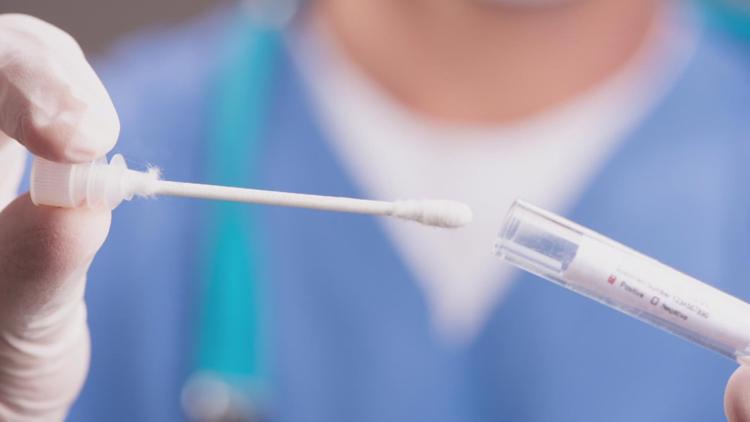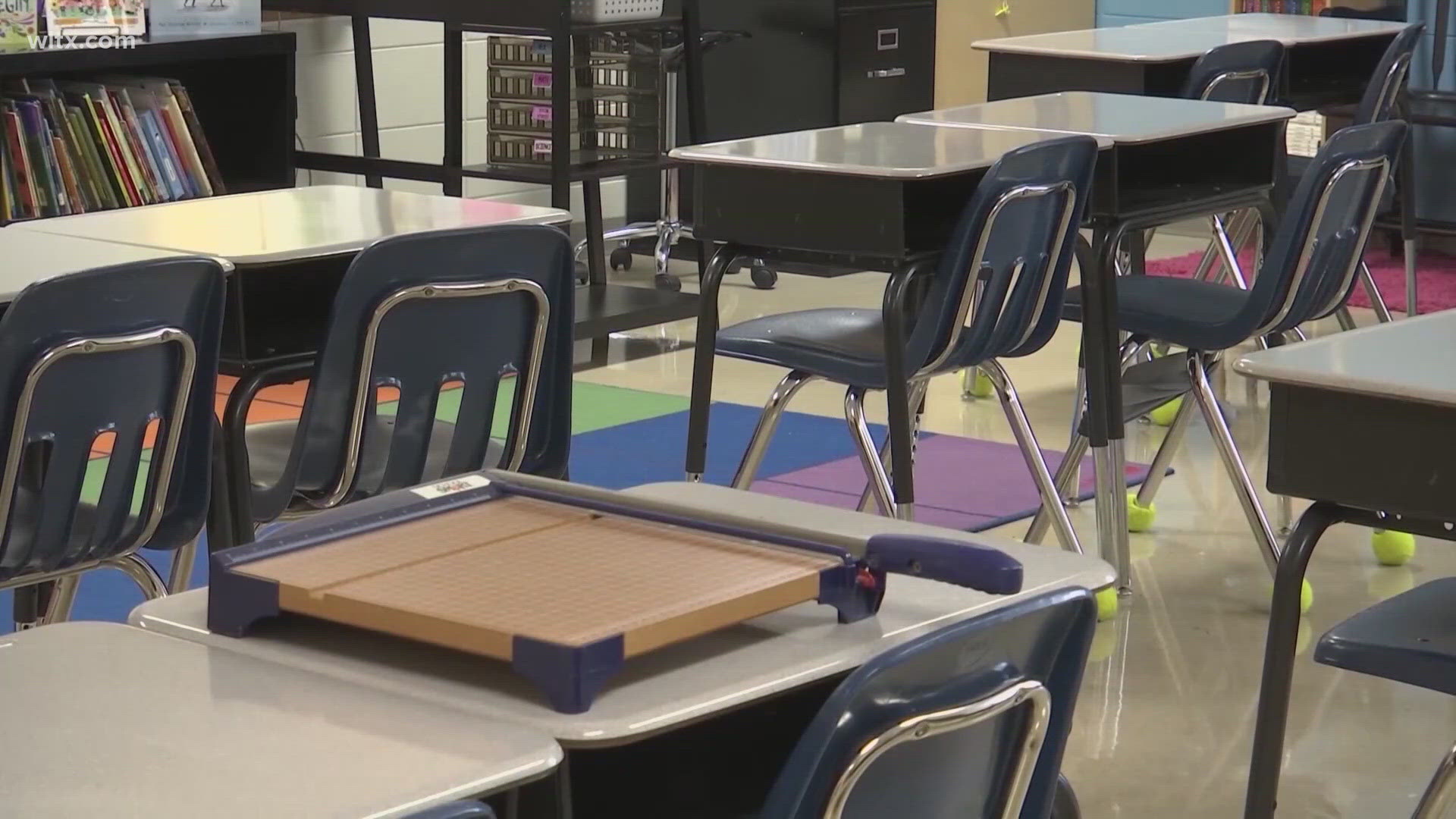COLUMBIA, S.C. — The South Carolina Department of Health and Environmental Control (DHEC) announced Friday that it has received and is distributing the first shipments of the at-home rapid COVID-19 antigen tests it ordered for the state.
The test kits, each containing two tests, have been distributed to DHEC public health departments (PHDs) around the state for community use and will be available for pickup beginning Monday, Jan. 24. Residents can visit DHEC’s testing locator to confirm whether their local PHD has at-home rapid tests available.
RELATED: NC health leaders say these communities are once again seeing higher COVID impacts than others
To date, the agency has ordered more than 2 million tests and has received about 140,000 of them. DHEC said it expects to receive the full order of rapid tests over the course of the next several weeks and we will alert the public when they are available.
"The convenience of having it at home is way better than having to wait in a line for half an hour, or an hour, or whatever it may be," Kate Postma, Rock Hill resident, said.
DHEC tests will be available through county health departments. People have to pick up the kit in person.
"These are very good, reliable, they're excellent tests, but they also are only as good as how well they're performed," DHEC's Jonathan Knoche said.
These at-home rapid tests are easy to use, have received emergency use authorization, and provide a result in minutes as opposed to hours or days. While the brand of test that DHEC receives may change over time, the authorization, ease of use, and resulting times will not.
"It's very important to see if you have the virus and so you wouldn't spread it to other people in your family or community," Fort Mill resident Lynn Wilson said.
Half of the first shipment has been designated for community members, and the other half has been set aside for first responders, state government agencies, long-term care facilities, correctional facilities, and school districts.
“Honestly, just having more readily access available testing is going to help all around,” Joe Burke with the Fort Mill School District said.
Lancaster County Schools Superintendent Jonathan Phipps said the omicron variant has been driving up new cases.
"Our numbers have been off the charts for [the] past couple weeks with close contacts," he said.
Both the Lancaster County School District and the Fort Mill School District have drive-up testing available for students and staff, but Burke and Phipps said these will provide more convenience.
“It’ll help us identify positive cases quicker, which will allow us [to] cut down on any spread if people were in the classroom not realizing they’re positive,” Burke said.
At-home test results are not required to be reported to DHEC but can help an individual take appropriate action to monitor their health and prevent the spread of COVID-19 to others.
“The ones that they’re sending us, we’re going to have our folks proctor those in cases of emergency, especially if it’s to the point we’re trying to keep the school open,” Phipps said.
Contact Lana Harris at lharris@wcnc.com and follow her on Facebook, Twitter and Instagram. Contact Briana Harper at bharper@wcnc.com and follow her on Facebook, Twitter and Instagram.
There's also a federal program underway with the White House rolling out a phone line and website for people to receive free test kits. You can call 1-800-232-0233 or head to the site to order.
Contact Jesse Pierre at jpierrepet@wcnc.com or follow her on Facebook, Twitter and Instagram.
WCNC Charlotte is part of seven major media companies and other local institutions reporting on and engaging the community around the problems and solutions as they relate to the COVID-19 pandemic. It is a project of the Charlotte Journalism Collaborative, which is supported by the Local Media Project, an initiative launched by the Solutions Journalism Network with support from the Knight Foundation to strengthen and reinvigorate local media ecosystems. See all of our reporting at charlottejournalism.org.



